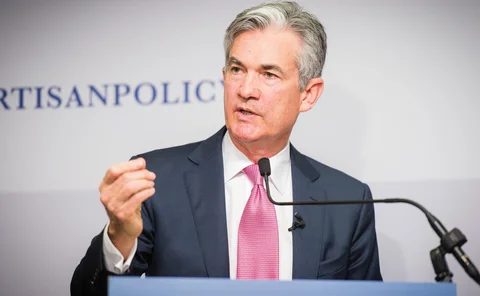Economics
Researcher uses dynamic factor model for ‘nowcasting’
Research makes three additions to widely-used model
Changing policy impact may knock forecasts askew – Riksbank economists
Economists suggest systematic errors of forecasts in recent years may reflect changes in the effectiveness of monetary policy
Spanish paper looks at eurozone inflation expectations
Pan-eurozone factors are more important than country-specific forces, paper says
BoE unveils database of macro-prudential policies
Researchers attempt to classify the myriad forms of macro-prudential policy, compiling panel data on when policies were tightened and loosened in different countries
Finnish paper rethinks transmission of financial shocks
Researcher’s model uses search and matching approach
ECB publishes latest eurozone trade and investment guide
“Bop and IIP book“ explains compilation of national and eurozone figures
Eurozone must urgently raise productivity, Draghi warns
ECB policy provides governments with "window of opportunity" for reform, ECB president says
Austrian central bank gives award to two young economists
Papers study responses to shocks in structural funds and effects of trade on business cycle
Poloz urges economists to create new economic models
The rise of the service sector has changed the way productivity and output can be calculated, the Canadian governor says, musing on whether the relationship between inflation and growth could change over time
BoE’s Vlieghe dismisses neo-Fisherian idea that low rates cause low inflation
MPC member says “small minority” of academics who suggest lower rates may cause low inflation do not present particularly compelling arguments
OECD expects growth boost from Trump infrastructure plans
Organisation says “well targeted” public spending could help economies escape slow growth, though it warns protectionism might undo the benefits
Norges Bank paper presents new evidence on immigration impact
Authors seek to disentangle immigration shock from broader macroeconomic effects, using unique Norwegian data series
Stiglitz urges central banks to focus on credit, not interest rates
Emphasis on interest rates ignores more important question of whether credit is getting where it is needed, Nobel economist argues
Central Bank of Brazil establishes data portal
Central bank creates hub for 454 data sets, combining data from government database and other sources; bank has plans to launch data promotion scheme in 2017
RBA paper asks why companies fail
Researchers find specific features of Australian companies make them more likely to fail
Israel’s red tape is bad for business – Flug
The Bank of Israel governor says cutting back on bureaucratic regulations could help the economy grow faster with little budgetary impact
Swiss paper shows macro impacts on two safe-haven currencies
Authors surprised to find no significant impact on franc or yen stemming from euro crisis; foreign macroeconomic data has asymmetric impact
Australasia has avoided stagnation trend – RBNZ’s Bascand
Different household behaviour in Australia and New Zealand appears to have contributed to higher growth and investment
BoJ paper designs new measure of trend inflation
Author’s measure reflects the weighted average of an adaptive component and a forward-looking component
Colombian paper models non-linearity in sovereign risk
Model of real exchange rates seeks to capture the non-linear effects of sovereign risk for Latin American countries
Fed’s Powell sees China as major factor in global trade slowdown
Fed governor seeks to explain global trade slowdown, citing many factors but saying China “looms large” in the debate
Central banks should sacrifice some independence – Harvard economists
A group including the UK’s Ed Balls says central banks are losing legitimacy; handing over some “political independence” could reverse the trend without damaging policy outcomes
BIS’s Shin links dollar strength to global malaise
Head of research outlines how dollar strength affects leverage globally, causing deviations from covered interest parity and potentially impacting growth and trade
Negative oil shocks outweigh positive ones, says Irish paper
Researcher uses TVAR model to examine eurozone data; concludes size of oil price and economic shock also affects impact on inflation























